Today's Top Picks

Cyber and Physical Resilience in the Food and Agriculture Industry
Despite low profit margins and major setbacks caused by natural hazards and disasters, the food and agriculture sector continues to find innovative solutions. Balancing and integrating new concepts and technological advancements with an old-school farming mentality will keep this sector resilient and thriving when battling cyber and environmental threats.

Backyard Cybersecurity: The Local Challenge
The modern world increasingly relies on rapidly advancing digital technology, and cybercriminals progressively focus on ways to exploit technology’s vulnerabilities. Although higher levels of government and businesses may possess the tools necessary to protect against cyberattacks, local governments often do not.

Malicious and Non-Malicious Cyber Incidents: Education and Preparation
Working with stakeholders across an organization to ensure cyber resilience is a part of disaster planning. Education is critical. Helping users understand hackers’ strategies to compromise an organization is foundational, and forward-looking efforts can help prevent oversights or critical failures during larger events.
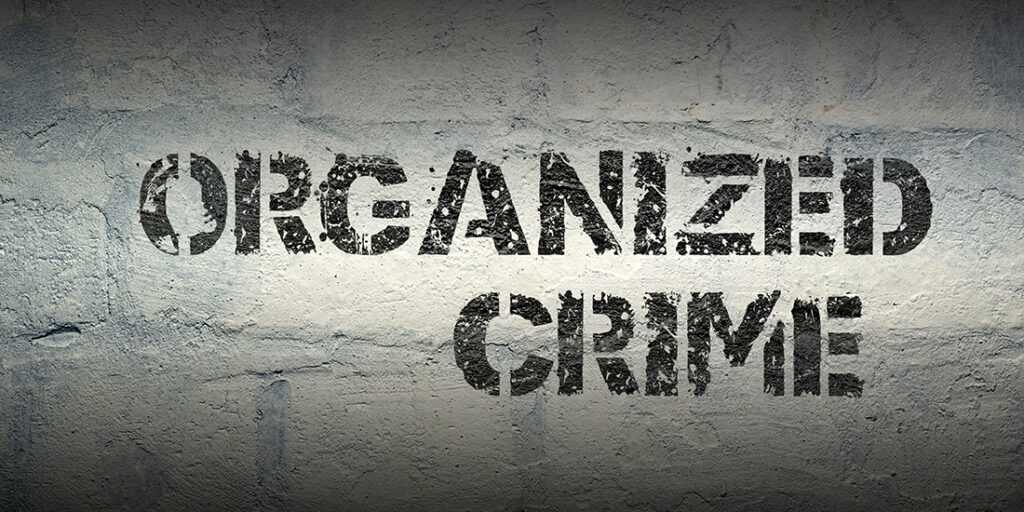
Tren de Aragua: From Prison Gang to Transnational Organized Crime Syndicate in the U.S.
The United States has never been shielded from transnational organized crime syndicates or transnational street gangs operating in its borders. But these days, extensive and additional technology are needed across federal, state, and local agencies. Moreover, combating these organizations will require better collaboration and coordination among partner agencies as well as human intelligence within migrant communities.
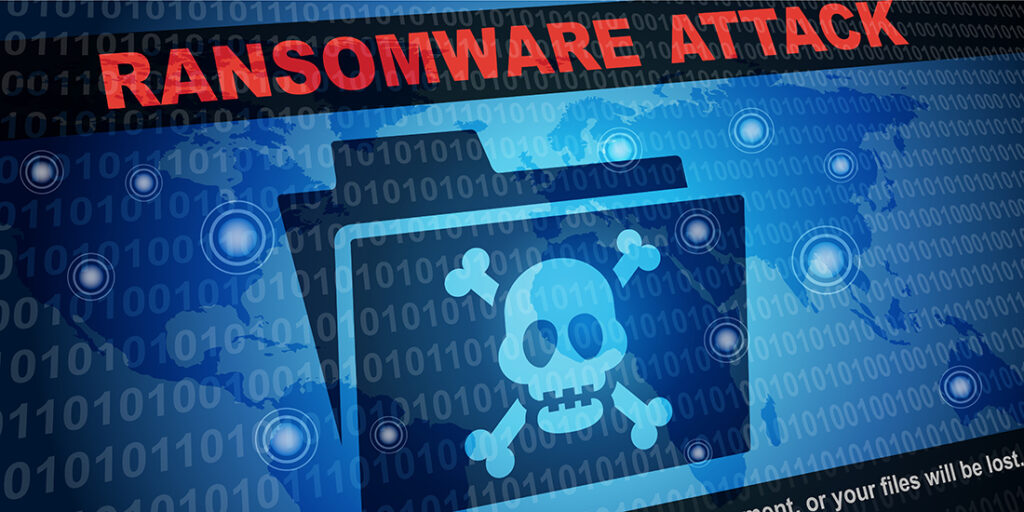
Securing Cities: The Fight Against Local Level Cyberthreats
As digital threats against local governments and private entities grow more sophisticated, the need for action becomes urgent. Cybersecurity is a shared responsibility, and at the local level, it forms the bedrock of the collective digital safety and security for all. Every citizen, agency, and organization must play a part in this effort.
Trending
 Bridging Communication Gaps: Lessons from Hurricane Helene by Greg Hauser Hurricanes in 2024 caused widespread damage to infrastructure, leading to a critical but often overlooked issue: isolation. Physical and technological…
Bridging Communication Gaps: Lessons from Hurricane Helene by Greg Hauser Hurricanes in 2024 caused widespread damage to infrastructure, leading to a critical but often overlooked issue: isolation. Physical and technological… A Systems Thinking Approach to Improving Emergency… by William Chapman “PACE” planning helps organizations fail gracefully, but systems thinking reduces the likelihood of failure altogether. Combining both approaches helps organizations…
A Systems Thinking Approach to Improving Emergency… by William Chapman “PACE” planning helps organizations fail gracefully, but systems thinking reduces the likelihood of failure altogether. Combining both approaches helps organizations… Disaster Stress Management in an Emergency Operations Center by Mary Schoenfeldt Disasters affect responders and community members, but they also bring trauma to those working inside emergency operations centers. Distance from…
Disaster Stress Management in an Emergency Operations Center by Mary Schoenfeldt Disasters affect responders and community members, but they also bring trauma to those working inside emergency operations centers. Distance from… Why Emergency Management Is a Good Career for… by Mathew Perrill For many service members, the transition from the military to a civilian workforce can be challenging. They have been trained…
Why Emergency Management Is a Good Career for… by Mathew Perrill For many service members, the transition from the military to a civilian workforce can be challenging. They have been trained…Trending
 Disaster Stress Management in an Emergency Operations Center by Mary Schoenfeldt Disasters affect responders and community members, but they also bring trauma to those working inside emergency operations centers. Distance from…
Disaster Stress Management in an Emergency Operations Center by Mary Schoenfeldt Disasters affect responders and community members, but they also bring trauma to those working inside emergency operations centers. Distance from… Why Emergency Management Is a Good Career for… by Mathew Perrill For many service members, the transition from the military to a civilian workforce can be challenging. They have been trained…
Why Emergency Management Is a Good Career for… by Mathew Perrill For many service members, the transition from the military to a civilian workforce can be challenging. They have been trained… Bridging Communication Gaps: Lessons from Hurricane Helene by Greg Hauser Hurricanes in 2024 caused widespread damage to infrastructure, leading to a critical but often overlooked issue: isolation. Physical and technological…
Bridging Communication Gaps: Lessons from Hurricane Helene by Greg Hauser Hurricanes in 2024 caused widespread damage to infrastructure, leading to a critical but often overlooked issue: isolation. Physical and technological… A Systems Thinking Approach to Improving Emergency… by William Chapman “PACE” planning helps organizations fail gracefully, but systems thinking reduces the likelihood of failure altogether. Combining both approaches helps organizations…
A Systems Thinking Approach to Improving Emergency… by William Chapman “PACE” planning helps organizations fail gracefully, but systems thinking reduces the likelihood of failure altogether. Combining both approaches helps organizations…Trending
Bridging Communication Gaps: Lessons from Hurricane Helene by Greg Hauser Hurricanes in 2024 caused widespread damage to infrastructure, leading to a critical but often overlooked issue: isolation. Physical and technological…
A Systems Thinking Approach to Improving Emergency… by William Chapman “PACE” planning helps organizations fail gracefully, but systems thinking reduces the likelihood of failure altogether. Combining both approaches helps organizations…
Disaster Stress Management in an Emergency Operations Center by Mary Schoenfeldt Disasters affect responders and community members, but they also bring trauma to those working inside emergency operations centers. Distance from…
Why Emergency Management Is a Good Career for… by Mathew Perrill For many service members, the transition from the military to a civilian workforce can be challenging. They have been trained…
Domestic Preparedness Journal
Featured in this issue
- Special Units and Underutilized Resources
- Law Enforcement and Multidisciplinary Teams
- Public Order Policing Units in Disasters
- State Defense Forces in Emergency Response
- Emergency Carcass Operations
- Wildfire PREsponse: Closing the Gap With Mitigation
- Scouts and the Value of Prepared Youth
- Service Dogs: What First Responders Need to Know
- Emergency Management for Transitioning Veterans
- Podcast – Reframing Hurricane Response: Craig Fugate on Survivors as a First Line of Defense
- Podcast – Built to Serve: Chief Jeffrey J. Wittig on TIFMAS, Teamwork, and Emergency Response
Articles Out Loud

Article Out Loud – Law Enforcement Collaboration Within Multidisciplinary Teams
June 25, 2025
This is an article by Richard Schoeberl and Anthony (Tony) Mottola, an Article Out Loud from Domestic Preparedness, June 25,

Article Out Loud – State Defense Forces: The Untapped Backbone of Emergency Response
June 25, 2025
This is an article by Robert Hastings, an Article Out Loud from Domestic Preparedness, June 25, 2025. As disasters become


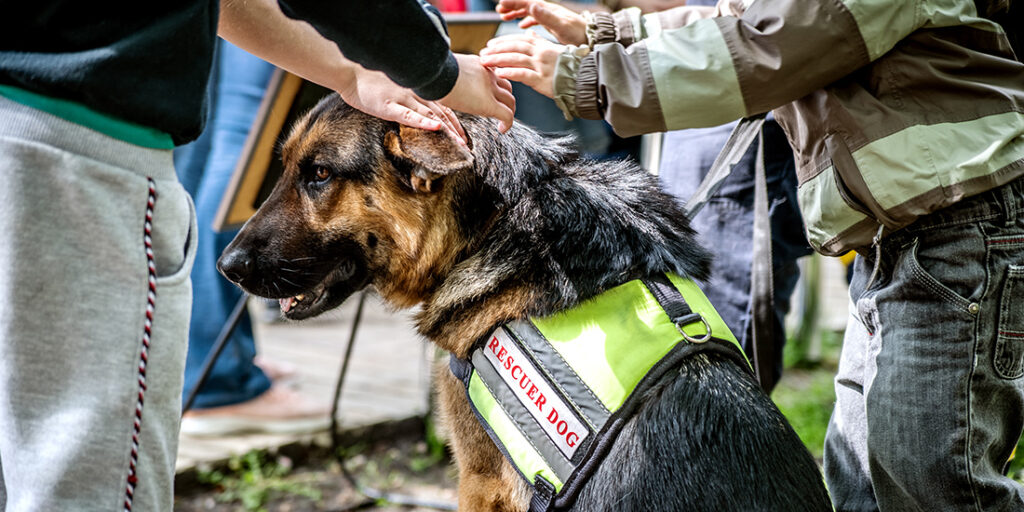
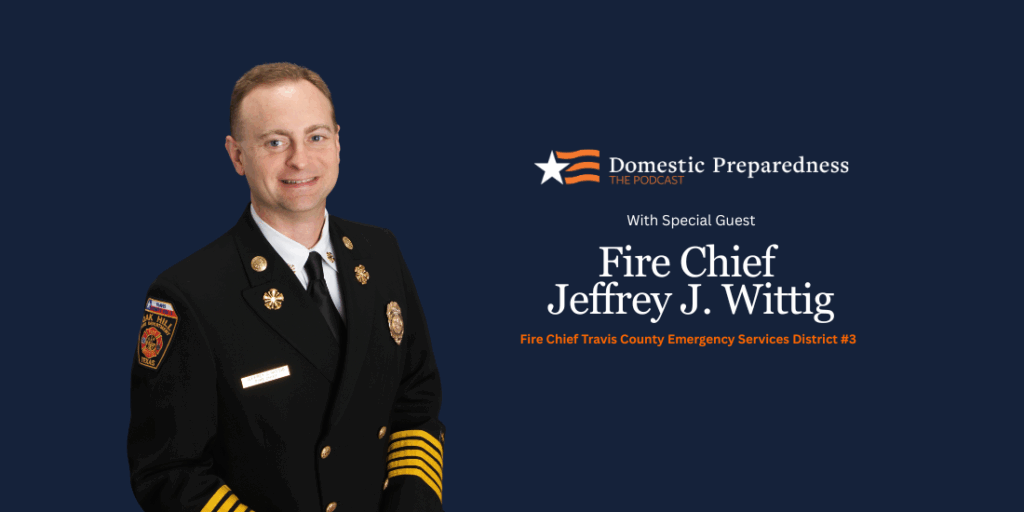
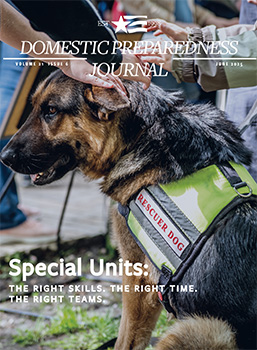

Preparedness – The Goal With No Finish Line